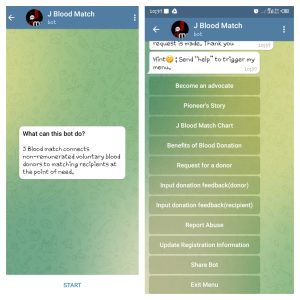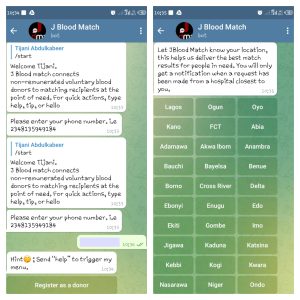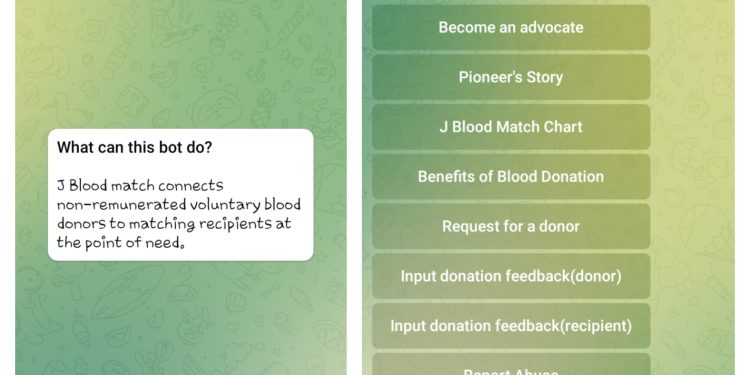By Tijani Abdulkabeer
According to the World Health Organization (WHO), transfusion of blood helps to save millions of lives but many patients requiring transfusion do not have timely access to donors, especially in low-income countries. The global health body recommends that every country in the world implement systems to drive safe blood donation in its national health care policy, to ensure adequate provision of blood for all patients who require transfusion. But despite institutionalizing the National Blood Transfusion Service (NBTS), Nigeria still struggles with voluntary donor recruitment.
For instance, NBTS, charged with the duty of providing safe, quality blood and blood products for transfusion maintained that the agency collects 500,000 pints of blood annually, showing a shortfall of about 73.5 percent. The NBTS Head of Planning, Research and Statistics, Adaeze Oreh, said that of the 500,000 pints, only about 25,000 pints were obtained from voluntary, unpaid donors in 2019 and 2020 respectively.
“From the data available to NBTS, approximately 80 percent of donations are from family members, which we call family replacement donations,” she said.
With a roughly 200 million population, Matshidiso Moeti, WHO Regional Director for Africa in 2021, said that yearly, Nigeria needs an average of 1.8 million pints of blood to sustain the health of its people. Infact, in commemoration of this year’s World Blood Donor Day (June 14), the global health body decried the acute blood shortage in Nigeria and other low-income countries.
As a direct intervention, in November 2019, Jela’s Development Initiative (JDI), a non-governmental organization launched J Blood Match, an Artificial Intelligence programme-bot into Telegram and Facebook messenger which “connects non-remunerated voluntary blood donors to matching recipients at the point of need.”

Photo: Tijani Abdulkabeer
The bot is programmed to recognise an individual as a blood donor only after registering with details such as personal phone number; gender; age; blood group; town, local government; and state of residence.
As a recipient (self or relative), individuals can request blood by answering the prompts of the bot to provide information on the blood type needed, reason for request, units required, location of the hospital, the day the blood is required, name of the physician, and where the patient is admitted.
Assuming there is a match, the system sends a message to the donor, notifying them of a blood need at a closer location. The individual has the option of accepting or declining the request. If accepted, the recipient gets alerted, gets the donor’s demographic data and both arrange for the donation off the platform. The cost of blood screening is borne by the recipient.
J Blood Match’s Founder, Angela Ochu-Baiye, said that the platform was conceived to bridge the gap of poor blood donation culture in Nigeria after observing the shortage in its blood bank. The platform is part of Nigeria’s blood donor pool using technology to follow the World Health Organization’s campaign for non-remunerated blood donors.
“J Blood Match started as an intervention tool, to make it easier for people to fulfill their civic duty of donating blood to people in need. It started so willing blood donors could be connected to recipients using their blood type and location.
“Knowing that it is worth saving a life and J blood match is a unique solution that can transform the world of blood donation,” Ochu-Baiye said in an interview.
Buttressing this, a research article published by the International Journal of Advanced Technology and Engineering Exploration in 2016, noted that with the wave of technology Nigeria needs to invest in a “mobile system of blood donation and acceptance”. The report emphasized that this will further help in reduction of the death rate caused by lack of accessibility to blood in emergency situations.
Using the J Blood match, Zibai Blessed, an Abuja based blood donor who donated blood back in 2020, said he had a “seamless experience using the bot program.” For Blessed, becoming a blood donor was borne out of his desire to help.
“Due to the various stories I have heard about how people have died because they couldn’t afford blood, that touched me a lot. I was part of a sensitization program before the launch of the J Blood Match app, they told us some of the problems, I just felt there was no harm, it was just my own way of helping. It was something out of humanity,” he said.
He however cited a bit of a challenge getting blood donation requests due to his inactiveness on social media. To him, having requests sent both offline and online would help.
“I am not very active on social media. Sometimes I log in and I see a previous request for blood donation while I was offline. I would suggest a two-way mechanism for reaching out to blood donors. A request can be sent on telegram as well as via sms. This way those who are offline at that moment can be notified,” he said.

Photo: Tijani Abdulkabeer
Similarly, in 2021, Okorie Favour, who at the time was a staff for a non-profit that works to tackle gender-based violence needed blood for a rape survivor.
The organization faced challenges of getting donors and considered using the JBlood Match solution. Okorie registered on behalf of the organization and her account was used to source for donors. She explained that the process was seamless.
“It’s a really simple process. It’s not complicated. It’s very easy to use. Registration is free and you get responses almost immediately,” she said describing her experience using the Telegram Bot.
So far, 57 connections have been made through the platform which now has 418 donors registered, and has received 135 requests since its launch in November 2019.
Speaking further, Ochu-Baiye said that the platform is presently faced with the burden of creating awareness to Nigerians and getting them to become voluntary blood donors and registering on J blood match.
“Also, having to create incentives that would encourage registered blood donors on J Blood match to accept a request when it comes to them has been a challenge. Incentivising donations can help get more people onboard. Imagine getting a popular fast food restaurant to give a free meal to every donor who makes a donation on our platform,” she said.
Another major challenge is the inaccessibility of the platform for visually impaired and blind people. Given the need to follow on-screen prompts, a person who is visually impaired or has complete vision loss would find it difficult to navigate and use the platform, thereby hindering access to safe blood through the bot program.
Lessons we can learn from AI Intervention
Speaking with this reporter, Abdulazeez Ibn Abdulazeez, a United Kingdom certified biomedical scientist with speciality in Haematology and Blood Transfusion science at Medbury Medical Service, Ikeja, Lagos, said that Artificial Intelligence intervention is boosting blood donations.
“It not only saves time but also reduces the stress of getting donors in emergencies. It’s a very much needed tool for getting blood to the patient. Also, it saves the use of blood banks in a low resource like sub-Saharan Africa. Through AI, patients also get quality blood through proper screening. It’s also a powerful tool to link voluntary blood donors,” he explained.
While the JBlood Match appears to be a novel initiative, across Africa, countries are leveraging digital and social media tools to catalyse blood donation drives. Recently, the Senegalese National Blood Transfusion Centre (CNTS) with partnership from Facebook and support from the World Health Organization (WHO) launched a social media campaign to encourage regular, voluntary blood donations.
The campaign, according to Professor Saliou Diop, the CNTS Director “sought to capitalize on the country’s skyrocketing social media usage to encourage more people to regularly donate blood.”
According to the report highlighting the gains of the campaign, Senegal’s blood donations plummeted by 75% when the COVID-19 pandemic hit. However, “the CNTS social media campaign helped those figures to rebound at a rate of 10% year on year. Between 2020 and 2021, donations increased by 11%,” the report revealed.
For J Blood Match which uses artificial intelligence to link blood donors to patients, the pandemic presented a unique yet equally challenging opportunity. According to Dr Abdulazeez, creating access to safe blood using AI comes with its own challenges especially because it’s a new sphere in Africa.
“Because it’s advanced technology, most of the disadvantages are around privacy and confidentiality; these are important things we don’t joke about in the medical profession. But many of these companies are more interested in invading our privacy because that’s how they make their money.
“There is really still a lot to consider in developing algorithms. There is a need for a lot of control and ethical considerations,” he concluded.
“This story has been supported by Nigeria Health Watch through the Solutions Journalism Network, a nonprofit organization dedicated to rigorous and compelling reporting about responses to social problems, solutionsjournalism.org”














